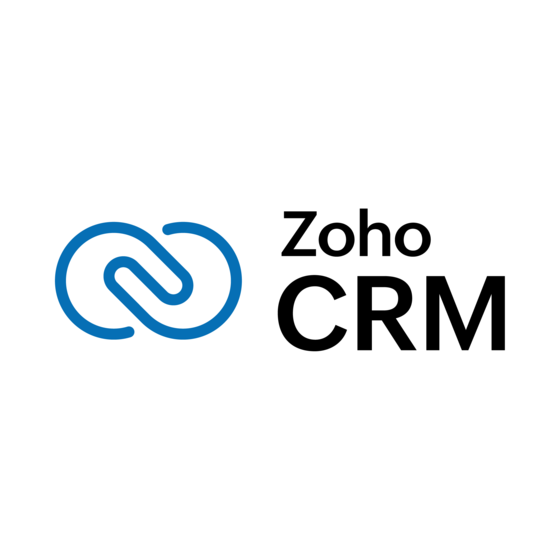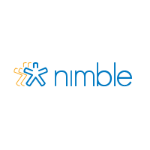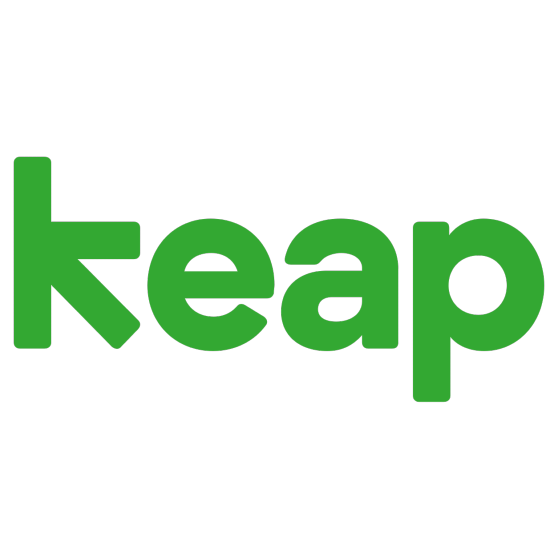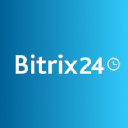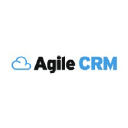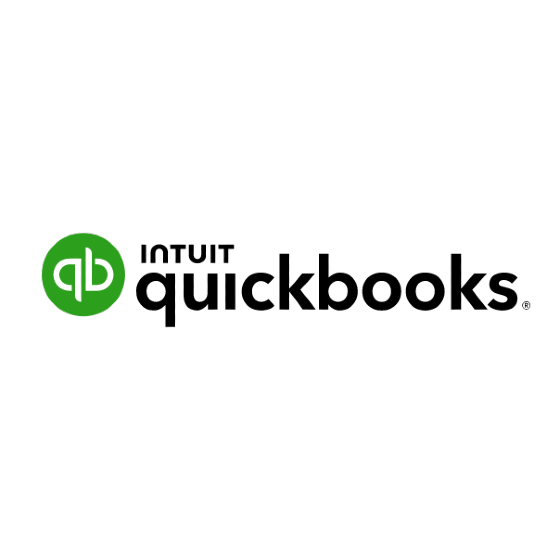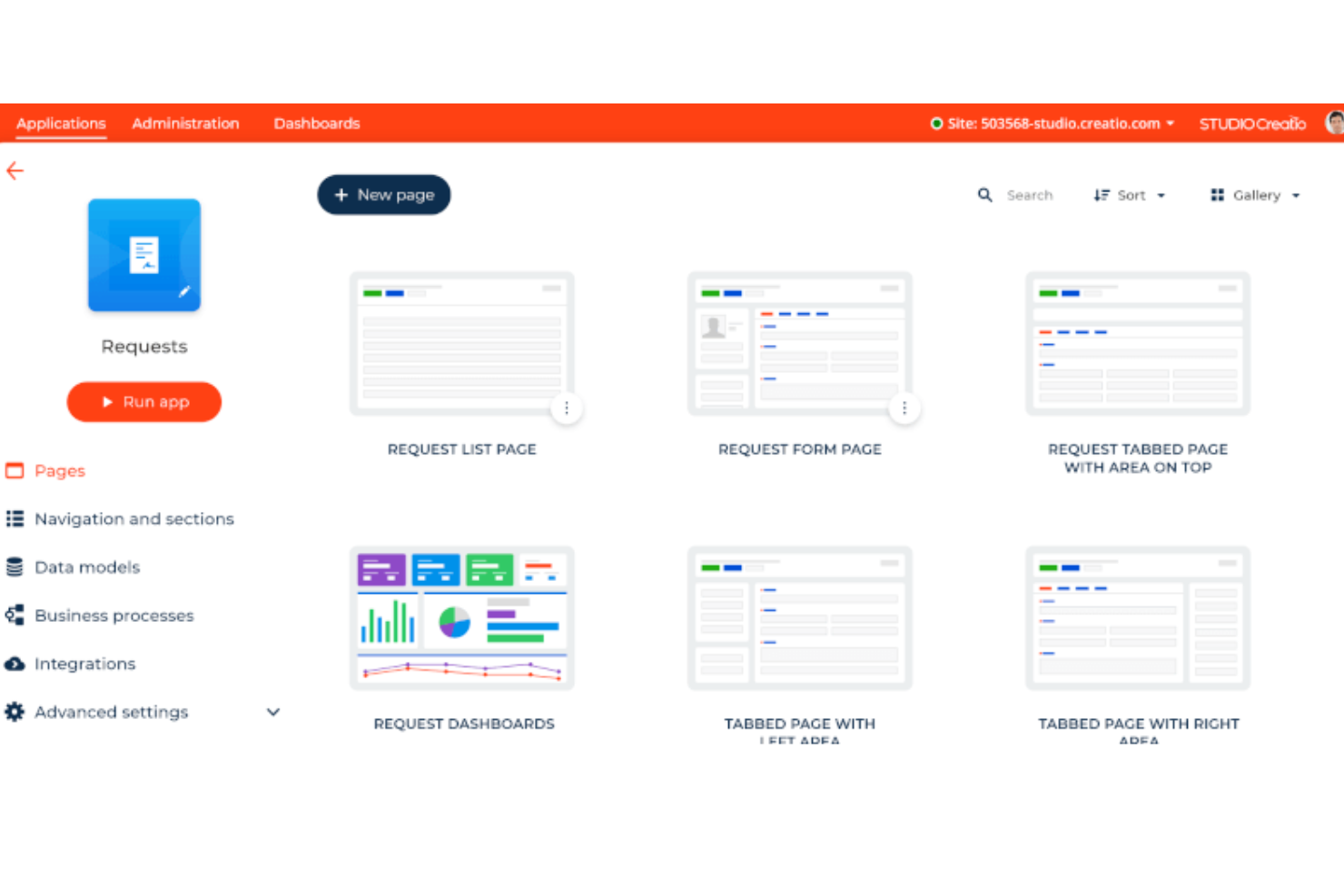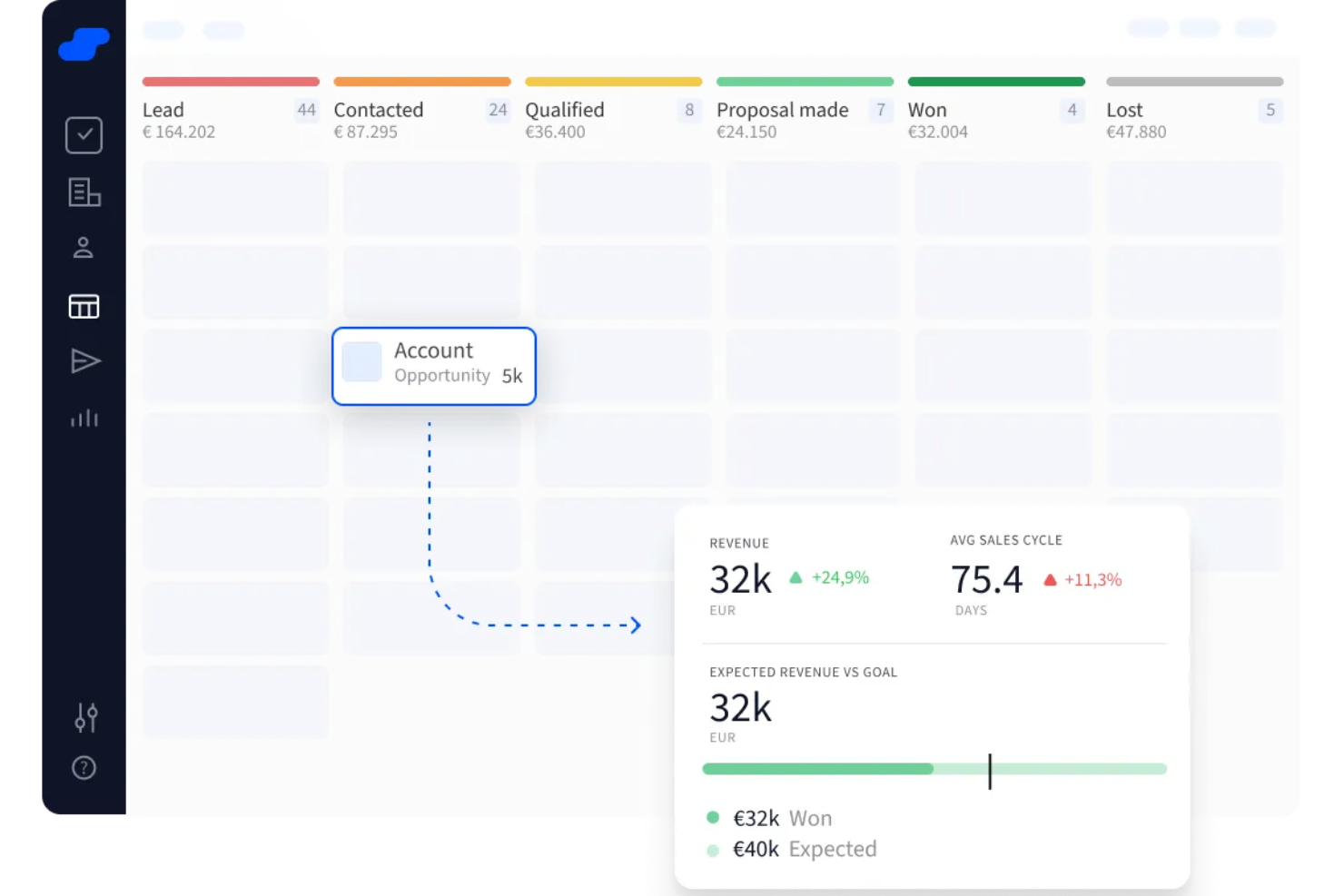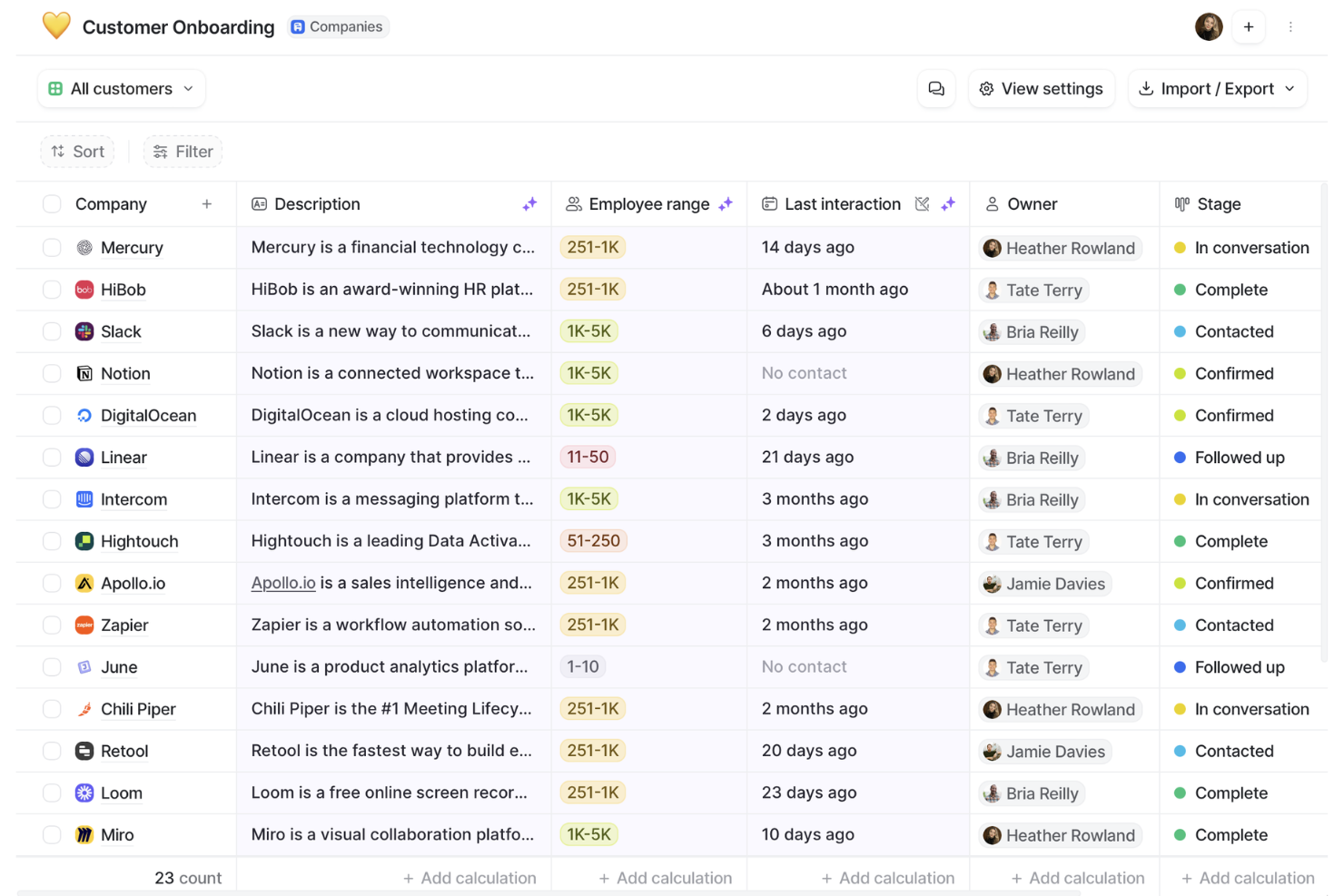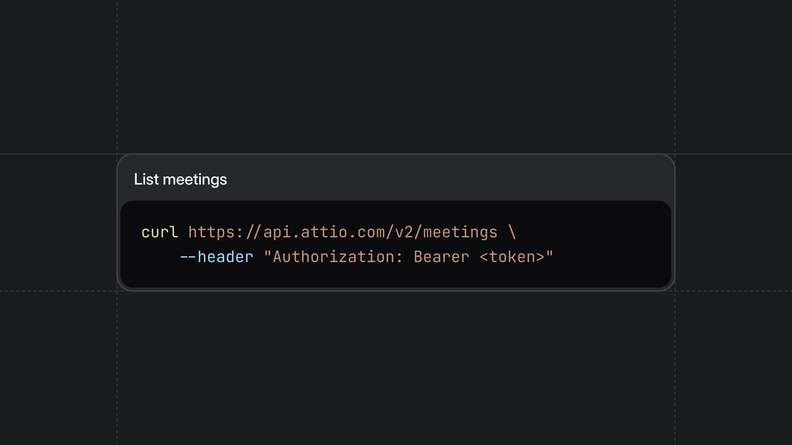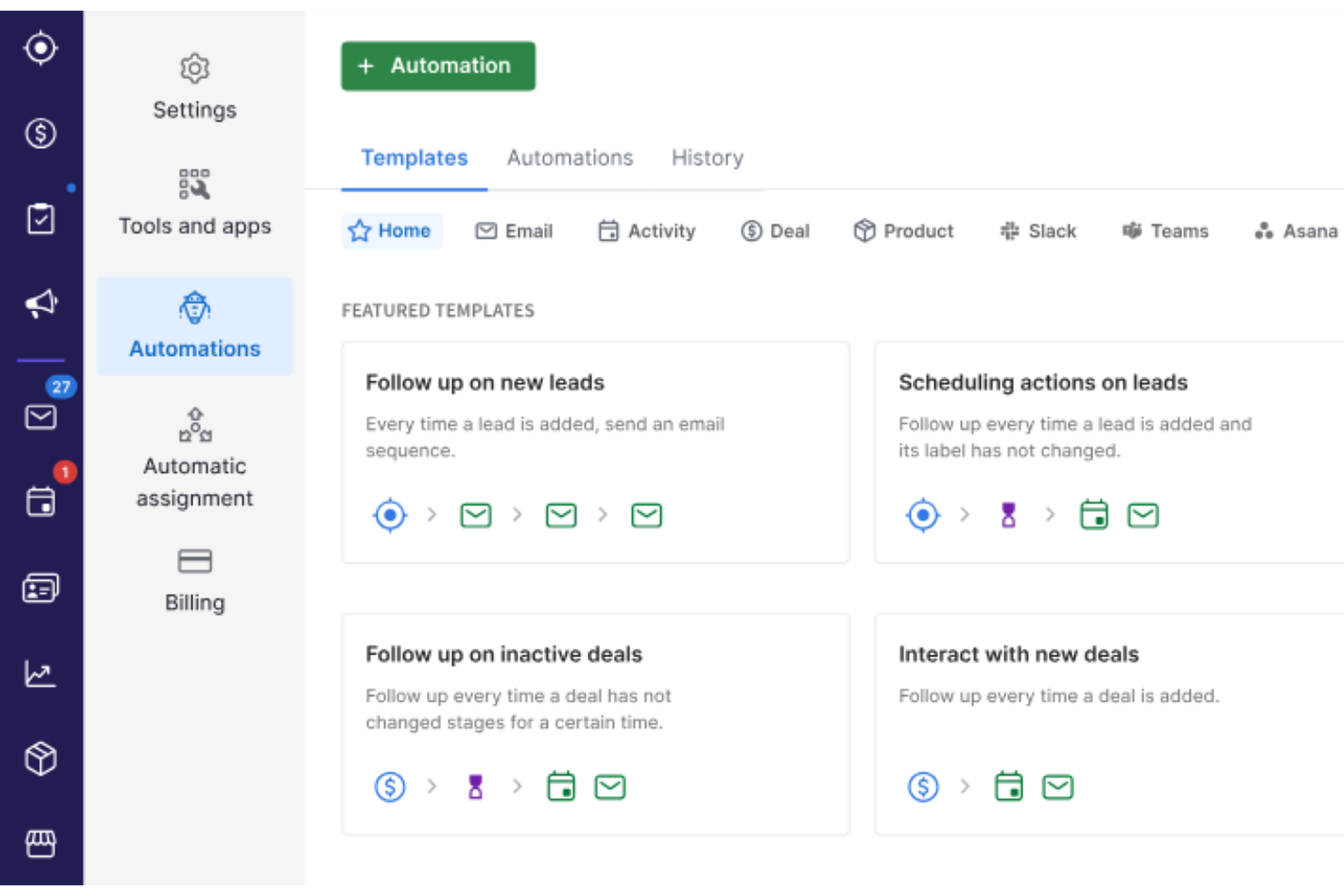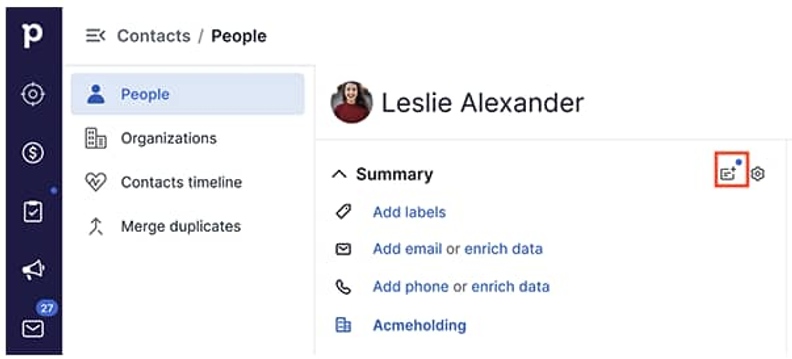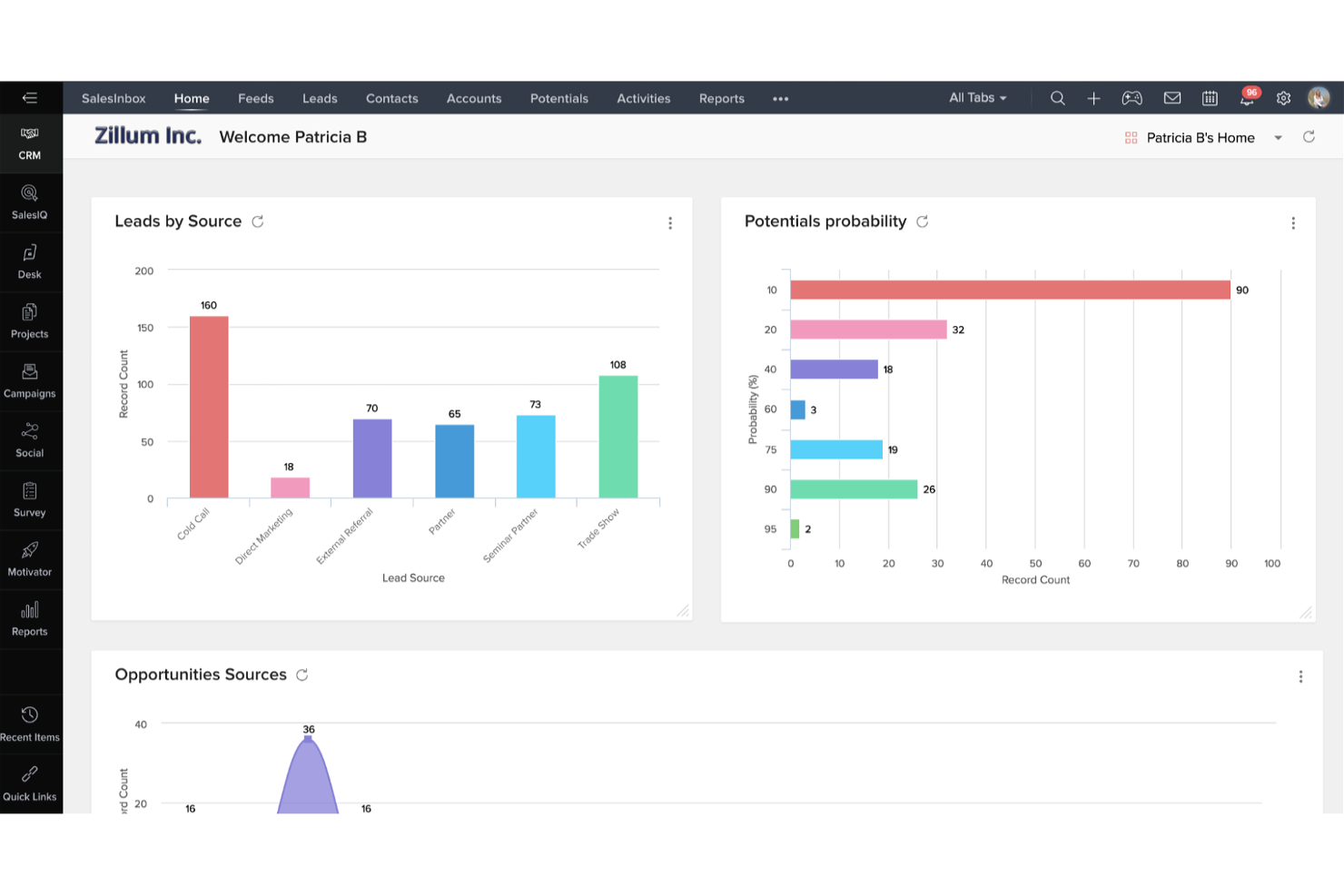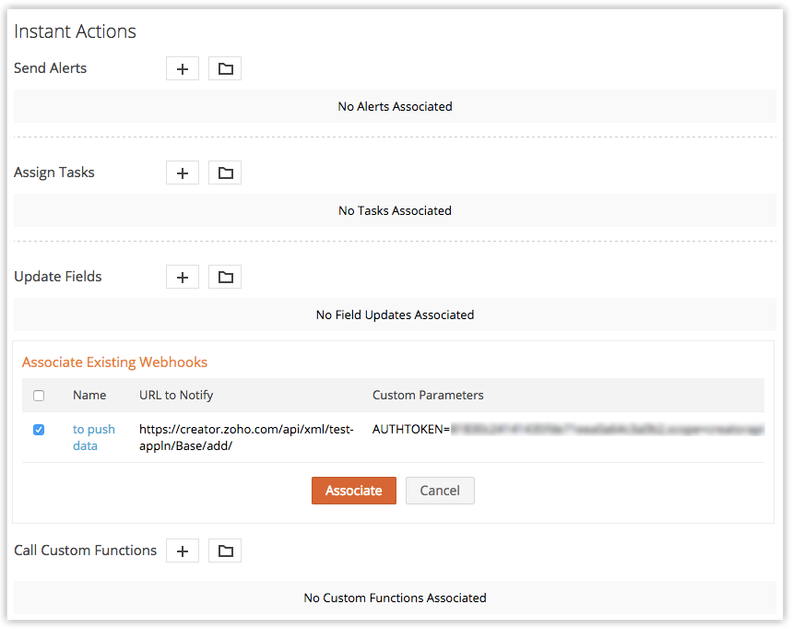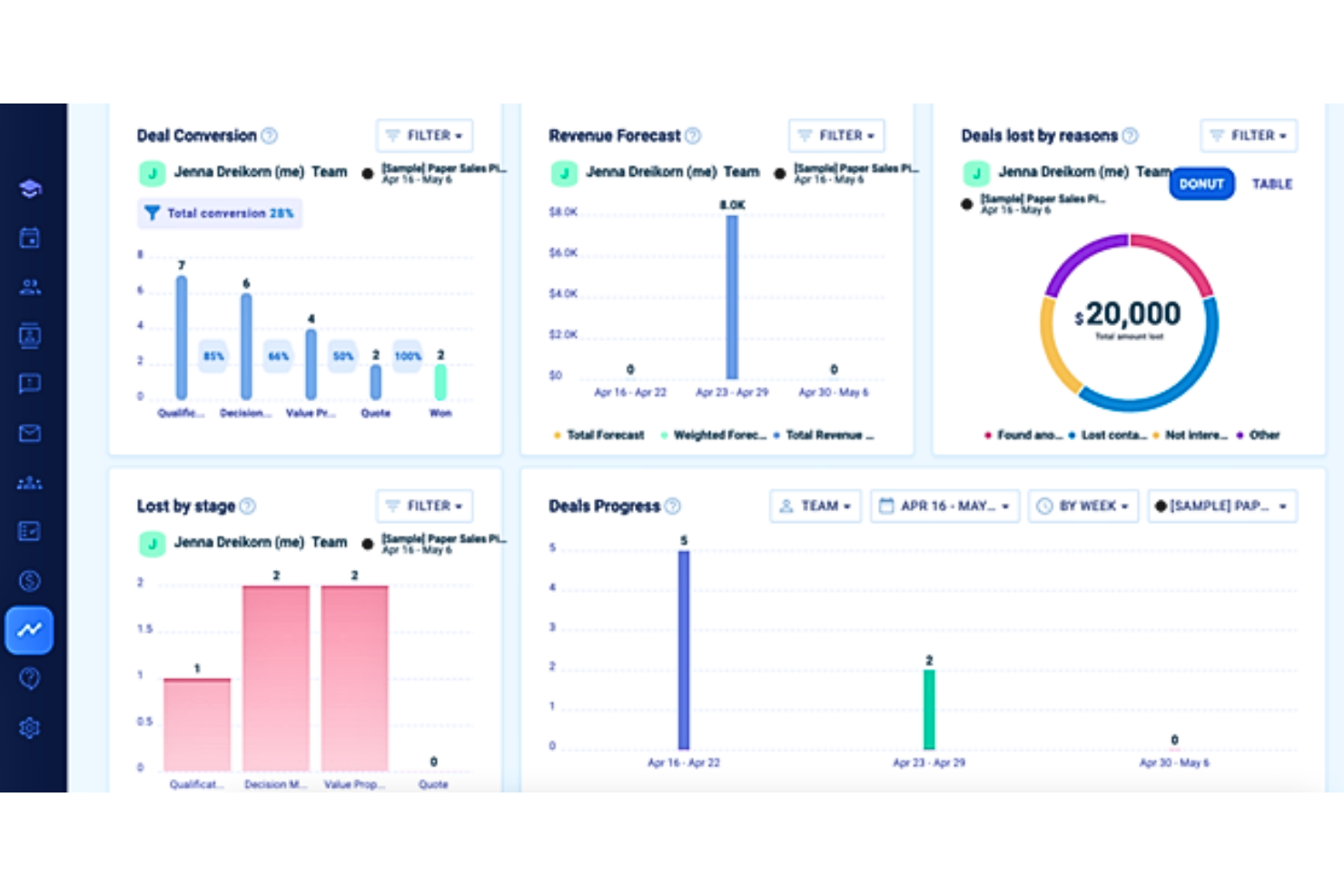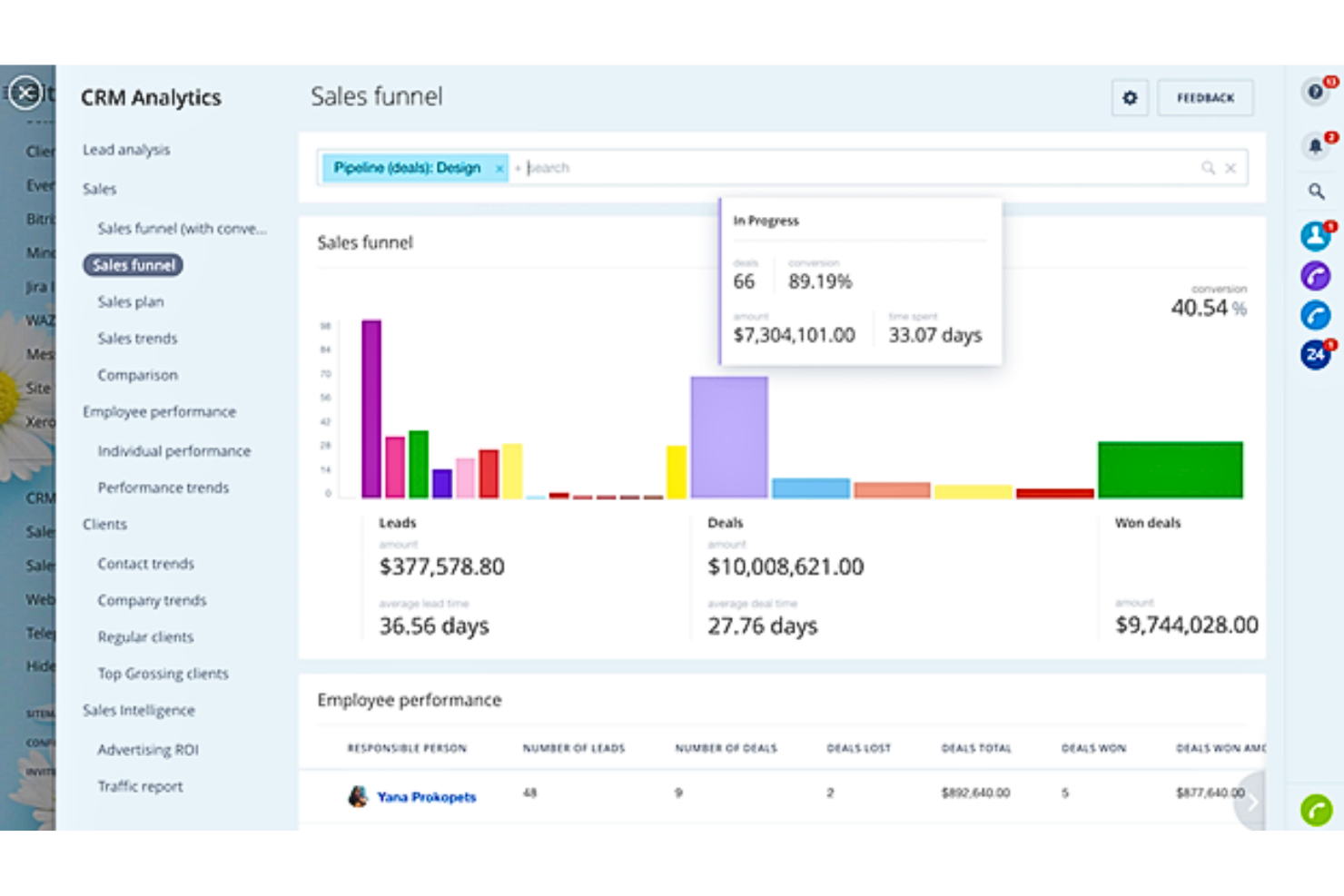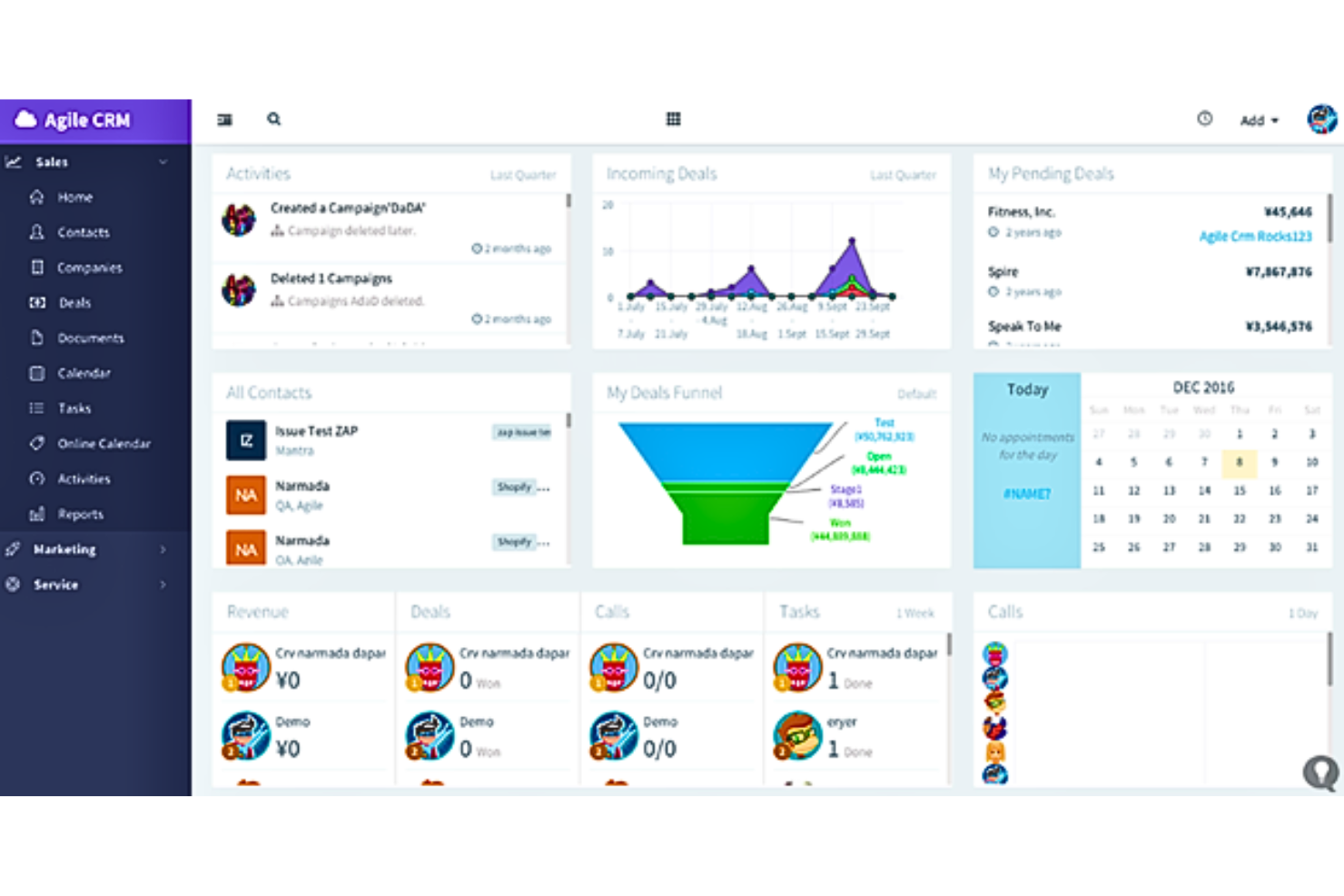10 Best AI CRM Tools Shortlist
Navigating the sea of CRM options can be daunting. You're looking to enhance customer relationships, streamline sales processes, and boost revenue, but the challenge lies in selecting the right tool. I understand the intricacies of this decision. Drawing from my extensive experience with CRM, sales, and business intelligence software, I've sifted through the options to present you with the best AI CRM solutions.
These tools are not just about managing contacts; they're intelligent systems that predict customer behavior, automate tasks, and provide actionable insights. The benefits are clear: improved efficiency, personalized customer experiences, and data-driven decision-making. The main pain points addressed include time-consuming data entry, difficulty in prioritizing leads, and lack of actionable insights from customer data. Trust in my expertise to guide you to the right choice, because I've been where you are, and I know what works.
Why Trust Our Software Reviews
Best AI CRM Tools Summary
This comparison chart summarizes pricing details for my top AI CRM tool selections to help you find the best one for your budget and business needs.
| Tool | Best For | Trial Info | Price | ||
|---|---|---|---|---|---|
| 1 | Best for no-code CRM automation | 14-day free trial | From $25/user/month | Website | |
| 2 | Best for small and medium B2B teams | 30-day free trial | From $29/user/month (billed annually) | Website | |
| 3 | Best for customizable business workflows | 14-day free trial | From $29/user/month (billed annually) | Website | |
| 4 | Best for visual sales pipeline management | 14-day free trial | From $14/user/month (billed annually) | Website | |
| 5 | Best for AI-driven sales automation | 15-day free trial | $14/user/month (billed annually) | Website | |
| 6 | Best for social media integration | 14-day free trial | From $25/user/month (billed annually) | Website | |
| 7 | Best small business CRM | 14-day free trial | From $249/user/month (billed annually) | Website | |
| 8 | Best for teams needing extensive collaboration tools | Free plan available | From $40/user/month (minimum 5 users) | Website | |
| 9 | Best for integrated sales and marketing tools | Free plan available | From $8.99/user/month (billed annually) | Website | |
| 10 | Best for deep integration with Microsoft products | Not available | Pricing starts at $65/user/month (billed annually) | Website |
-

Expedite Commerce
Visit Website -

Prisync
Visit WebsiteThis is an aggregated rating for this tool including ratings from Crozdesk users and ratings from other sites.4.7 -

QuickBooks Online
Visit WebsiteThis is an aggregated rating for this tool including ratings from Crozdesk users and ratings from other sites.4
Best AI CRM Reviews
Check out my comprehensive reviews of top AI CRM tools, detailing the advantages and drawbacks of each. Here are the unique features and ideal scenarios for their application to inform your decision-making process.
CRM Creatio is a versatile customer relationship management tool built on a no-code platform designed to enhance marketing, sales, and service processes through automation and AI-driven insights.
Why I Picked CRM Creatio: I like that the platform leverages artificial intelligence to enhance CRM functionalities, such as predictive analytics for customer behavior, AI-driven lead scoring, and personalized customer journeys. These features enable businesses to automate complex workflows, streamline operations, and improve customer engagement without needing extensive IT support. Creatio’s no-code environment also allows users to quickly adapt to market changes and business needs.
Standout features & integrations:
Features include business process modeling that allows users to visualize and optimize workflows. Its customer service automation helps streamline support processes, while its multi-channel marketing campaigns enable businesses to reach customers through various channels. It also has real-time performance metrics.
Integrations include Mailchimp, Zapier, DocuSign, Twilio, Microsoft Office 365, Google Workspace, LinkedIn, Stripe, QuickBooks, Jira, Slack, and more.
Pros and cons
Pros:
- Automated reminders to follow up with new leads
- Highly customizable platform
- Advanced tools for managing leads
Cons:
- Learning curve for those unfamiliar with no-code platforms
- Initial setup can be complex
Salesflare is an AI-powered CRM built for small and mid-sized B2B sales teams who want to spend less time on data entry. It pulls in contacts, emails, meetings, and activity automatically, so you don’t have to.
Why I Picked Salesflare: Salesflare is a good fit for teams that want AI to actually do CRM work for them—like suggesting new contacts based on your conversations, scoring leads using live engagement data, and summarizing your account history so you’re never caught off guard in meetings. It also gives contextual suggestions about next steps and lets you ask questions about past interactions using a chat-style assistant.
Standout features & integrations:
Features include automated email tracking that logs opens, clicks, and replies without extra setup. You can also use email workflows to build simple sequences that send follow-ups or reminders based on behavior. The CRM also keeps a shared team feed that automatically logs team-wide interactions and touchpoints across accounts.
Integrations include Google Workspace, Intercom, MailChimp, QuickBooks Online, Slack, Stripe, Shopify, and Calendly.
Pros and cons
Pros:
- Summarizes full conversation timelines
- Surfaces follow-up reminders on time
- Automates contact and account suggestions
Cons:
- Lacks highly tailored workflows for complex teams
- Timeline can get cluttered with irrelevant entries
Attio is an AI-powered CRM tool designed to help businesses create customized CRM solutions. It offers features such as templates for various use cases, enriched data integrations, and real-time data reporting.
Why I Picked Attio: Attio offers the ability to create highly adaptable pipelines that can be tailored to unique business workflows. This flexibility ensures CRM fits into existing processes rather than forcing businesses to adapt to a rigid system. This customization extends to the creation of custom objects and fields, allowing businesses to capture and organize data in a way that best supports their sales and customer relationship strategies. The dynamic reporting engine further enhances this by enabling users to drill down into the metrics that matter most.
Standout features & integrations:
Features include real-time collaboration that allows teams to see changes and updates. The automatic contact enrichment feature ensures that contact profiles are always up-to-date with the latest information, drawn from hundreds of sources. Additionally, the customizable templates and intuitive UI make it easy to create and refine workflows that match unique business processes.
Integrations include Google Sheets, Airtable, Tally, Gmail, Coda, Signeasy, Slack, Asana, Webflow, Jotform, Cal.com, Mailchimp, Typeform, Brevo, and Google Calendar.
Pros and cons
Pros:
- Supports real-time collaboration
- Automatically enriches data
- Adaptable pipelines and deep customization options
Cons:
- Mobile app lacks some functionalities
- Could offer more advanced reporting features
New Product Updates from Attio
Attio Introduces Meeting and Call Recording APIs
Attio launches beta Meeting and Call Recording APIs to enhance data access. For more information, visit Attio's official site.
Pipedrive is a sales CRM platform designed to help businesses manage leads, track sales activities, and close deals more efficiently. It's known for its visual sales pipeline, which provides a clear view of the entire sales process.
Why I Picked Pipedrive CRM: I like how Pipedrive's AI capabilities seamlessly integrate with its visual sales pipeline management. The AI-powered sales assistant offers valuable insights and suggestions, helping sales teams focus on the most promising leads and opportunities. By analyzing sales data and patterns, the AI assistant can predict outcomes and recommend the best actions to take, ensuring a more efficient and effective sales process.
Standout features & integrations:
Features include reporting and analytics for detailed insights into sales performance, customizable dashboards to display the most relevant information, built-in email integration for better communication, and task automation to reduce the time spent on repetitive tasks, like email follow-ups.
Integrations include Google Workspace, Microsoft Office 365, Zapier, Trello, Slack, Mailchimp, Asana, Xero, QuickBooks, HubSpot, Zendesk, DocuSign, PandaDoc, Calendly, Zoom, and Microsoft Teams.
Pros and cons
Pros:
- Easy-to-use platform
- Task automation and AI assistance features
- Highly customizable pipelines
Cons:
- May take time to learn how to customize the platform
- Some AI features are limited to higher-tier plans
New Product Updates from Pipedrive CRM
Enhance Your CRM with Pipedrive CRM's Data Enrichment
Pipedrive CRM introduces data enrichment to auto-fill company and contact details in deal views, enhancing lead qualification. For more information, visit Pipedrive CRM's official site.
Zoho CRM is a versatile AI CRM platform built to enhance business operations with intelligent automation and strong data privacy protections. It offers powerful tools for managing sales, marketing, and customer support while leveraging AI to drive smarter workflows.
Why I Picked Zoho CRM: Zoho CRM earned a spot on this list for its comprehensive AI toolkit, which includes predictive analytics, sales forecasting, and anomaly detection to help your team uncover trends and mitigate risks. Its AI assistant, Zia, provides contextual recommendations and data enrichment, while automation tools streamline repetitive tasks—helping teams make better decisions and operate more efficiently.
Standout features & integrations:
Features include a robust set of customization options that allow you to tailor the CRM to suit your specific needs, ensuring that your team can work in an environment that aligns with your business processes. The platform also offers comprehensive business intelligence tools, which give you access to actionable insights and detailed reports, facilitating better decision-making. Additionally, Zoho CRM provides developer tools that enable you to integrate and extend its functionalities, giving your team the flexibility to adapt the CRM to evolving business requirements.
Integrations include Google Workspace, Microsoft Office 365, Mailchimp, Slack, QuickBooks, Zapier, LinkedIn, Dropbox, DocuSign, Eventbrite, Shopify, and Twilio.
Pros and cons
Pros:
- Mobile app to improve communication with customers
- Zia (AI) helps identify prospects your team can convert
- Great for hybrid and remote teams
Cons:
- Advanced features gated behind top-tier subscriptions
- Pricey compared to other tools
New Product Updates from Zoho CRM
Automation with Webhook Action & Subflow Invocation
Zoho Flow introduces a "Send Webhook" action for direct data push to external endpoints and enables invoking subflows within a parent flow for modular, reusable workflows. More details at: Zoho Flow Release Notes.
Nimble is a CRM that enriches contact data with social media insights. It excels at utilizing social media for deeper audience engagement by integrating these insights into customer profiles.
Why I Picked Nimble: I selected Nimble for its distinctive capability to harness social media data within the CRM platform. This integration sets it apart from competitors, as it provides a comprehensive view of customer interactions across social channels. I judged Nimble to be best for this purpose because it empowers businesses to engage with their audience more personally and effectively by leveraging the wealth of information available through social media.
Standout features & integrations:
Features include its social media integration, which automatically updates contact profiles with relevant social data, and its smart segmentation capabilities, which enable targeted marketing campaigns. The platform also offers robust reporting and analytics tools to track engagement and performance.
Integrations include Microsoft 365, Google Workspace, HubSpot, Mailchimp, Wufoo, PandaDoc, ActiveCampaign, Zapier, CircleLoop, and 366 Degrees.
Pros and cons
Pros:
- Comprehensive reporting and analytics tools
- Smart segmentation for targeted outreach
- Direct integration of social media data into CRM
Cons:
- Additional charges for advanced features
- Limited storage space at the starting price
- Higher cost for monthly billing compared to annual
Keap simplifies customer relationship management and business process automation for small businesses. It is best for automating tasks to enhance operational efficiency.
Why I Picked Keap: I selected Keap because it uniquely addresses the challenges small businesses face in managing customer interactions and automating repetitive tasks. Its targeted approach to combining CRM with sales and marketing automation distinguishes it from other CRM platforms. I think Keap is best for automation because it offers a tailored solution that helps small businesses nurture customer relationships and grow sales without increasing their workload.
Standout features & integrations:
Features include advanced CRM capabilities, marketing automation to engage customers effectively, and sales automation to close deals faster. It also provides e-commerce functionalities, appointment scheduling, and email marketing tools.
Integrations include Gmail, Outlook, QuickBooks, Zapier, WordPress, WePay, Stripe, PayPal, LeadPages, and AppointmentCore.
Pros and cons
Pros:
- E-commerce and payment processing capabilities
- Extensive integration options
- Tailored CRM and automation for small businesses
Cons:
- Additional costs for extra features or users
- Annual billing may be a barrier for some
- Higher entry price point
Bitrix24 is an all-in-one workspace providing tools for management, communication, and collaboration on projects.
Why I Picked Bitrix24: I selected Bitrix24 because of its comprehensive suite of collaboration and communication tools, which are essential for modern team environments. It's the best option for teams needing extensive collaboration tools because it integrates various functionalities like task management, real-time communication, and document sharing in a single platform.
Standout features & integrations:
Features include task and project management tools, a built-in CRM, real-time communications like chat and video conferencing, and document management capabilities. These features are integrated seamlessly to provide a unified user experience that supports a wide range of business processes.
Integrations include Microsoft Office 365, Google Workspace, Mailchimp, Dropbox, Zoom, Slack, Xero, QuickBooks, PayPal, and Stripe.
Pros and cons
Pros:
- Extensive third-party integrations
- Affordable pricing structure
- A comprehensive set of collaboration tools
Cons:
- Customer support response times vary
- Initial setup and customization may require time
- Can be overwhelming due to the feature richness
Agile CRM is an all-in-one CRM platform designed to streamline sales, marketing, and service processes.
Why I Picked Agile CRM: I chose Agile CRM for its ability to offer a full suite of CRM features at an affordable price, making it accessible for small businesses. Its inclusion of marketing automation tools within the CRM platform differentiates it from competitors that often require additional software for this functionality. I believe Agile CRM is best for small businesses because it provides a single solution for managing customer relationships, sales, and marketing efforts, which is crucial for businesses with limited resources.
Standout features & integrations:
Features include contact and deal management, telephony, project management, and marketing automation. These tools are essential for small businesses looking to manage their customer interactions and sales processes efficiently. The platform also offers a range of integrations that enhance its capabilities.
Integrations include Google Workspace, Stripe, PayPal, Twilio, Shopify, Magento, WordPress, Zapier, QuickBooks, and Xero.
Pros and cons
Pros:
- Easy to use with a clean interface
- All-in-one solution with marketing automation
- Cost-effective for small businesses
Cons:
- Some users may experience a learning curve
- Customization options could be limited
- May lack advanced features for larger organizations
Dynamics 365 Sales streamlines sales processes with AI-driven insights and personalized customer engagement. It excels at integrating customer data and AI to enhance sales strategies.
Why I Picked Dynamics 365 Sales: I selected Dynamics 365 Sales for its robust AI capabilities that offer deep insights into customer interactions, setting it apart from other CRM tools. Its strength lies in its ability to provide a comprehensive view of the customer journey, making it best for businesses looking to leverage AI for a more connected and insightful customer engagement across various channels.
Standout features & integrations:
Features include predictive insights and seamless integration with other Microsoft products. It provides real-time sales data, personalized customer engagement tools, and a unified interface that enhances productivity.
Integrations include Microsoft 365, Teams, LinkedIn, Power BI, Power Automate, and Azure.
Pros and cons
Pros:
- Customizable and scalable to fit various business needs
- Strong integration with the Microsoft ecosystem
- Advanced AI for real-time insights and predictive analytics
Cons:
- Higher cost compared to some other CRM solutions
- Can be complex to implement for those unfamiliar with Microsoft products
Other AI CRMs
Below is a list of additional AI CRMs that I shortlisted, but did not make it to the top list. Worth checking them out.
- Oracle CX Sales
For large-scale enterprise use
- SAP Sales Cloud
For in-depth analytics and forecasting
- Close CRM
For inside sales teams' call automation
- Salesforce Einstein
For AI-powered customer insights
- Insightly CRM
For project management features
- Capsule
For small businesses seeking simplicity
- SugarCRM
For customizable workflow automation
- Zendesk Sell
For enhancing productivity
- Copper
For Google Workspace integration
- Apptivo
For versatility in apps
AI CRM Selection Criteria
When selecting the best AI CRM to include in this list, I considered common buyer needs and pain points like data integration challenges and user-friendliness. I also used the following framework to keep my evaluation structured and fair:
Core Functionality (25% of total score)
To be considered for inclusion in this list, each solution had to fulfill these common use cases:
- Manage customer interactions
- Automate sales processes
- Track sales leads
- Provide real-time analytics
- Integrate with other business tools
Additional Standout Features (25% of total score)
To help further narrow down the competition, I also looked for unique features, such as:
- Predictive analytics
- Natural language processing
- AI-driven customer insights
- Automated data entry
- Customizable dashboards
Usability (10% of total score)
To get a sense of the usability of each system, I considered the following:
- Intuitive interface
- Easy navigation
- Minimal learning curve
- Responsive design
- Customizable workflows
Onboarding (10% of total score)
To evaluate the onboarding experience for each platform, I considered the following:
- Availability of training videos
- Interactive product tours
- Access to webinars
- User-friendly templates
- Supportive chatbots
Customer Support (10% of total score)
To assess each software provider’s customer support services, I considered the following:
- 24/7 availability
- Multichannel support options
- Response time
- Quality of assistance
- Availability of a knowledge base
Value For Money (10% of total score)
To evaluate the value for money of each platform, I considered the following:
- Competitive pricing
- Feature-to-price ratio
- Availability of free trials
- Transparent pricing structure
- Scalability of pricing plans
Customer Reviews (10% of total score)
To get a sense of overall customer satisfaction, I considered the following when reading customer reviews:
- User satisfaction ratings
- Feedback on ease of use
- Comments on customer support
- Opinions on feature effectiveness
- Overall value perception
How To Choose An AI CRM
It’s easy to get bogged down in long feature lists and complex pricing structures. To help you stay focused as you work through your unique software selection process, here’s a checklist of factors to keep in mind:
| Factor | What to Consider |
|---|---|
| Scalability | Will the CRM grow with your business? Consider future expansion and whether the tool can handle increased data and users. |
| Integrations | Does it connect with your existing tools? Ensure seamless data flow between your CRM and other software like email, calendars, and marketing platforms. |
| Customizability | Can you tailor it to fit your workflows? Look for customization options that let you adapt the CRM to your team's specific needs. |
| Ease of use | Is the interface intuitive for everyone? A user-friendly design minimizes training time and boosts team adoption. |
| Implementation and onboarding | How quickly can your team get up to speed? Evaluate the resources the vendor offers, like training videos and support during setup. |
| Cost | Does it fit your budget? Compare pricing plans and check for hidden fees. Free trials can help assess value for money. |
| Security safeguards | How does it protect your data? Look for encryption, user permissions, and compliance with regulations like GDPR. |
| Support availability | What help can you expect? Assess the vendor's support channels and response times to ensure assistance when needed. |
Trends For AI CRMs In 2025
AI CRM technology is rapidly evolving. Here are the pivotal trends shaping its future.
- Predictive Lead Scoring: AI-driven predictive lead scoring is revolutionizing CRM prioritization efforts. By analyzing historical data and behavior patterns, AI forecasts the leads most likely to convert. This trend is crucial for optimizing sales efforts and resource allocation.
- Enhanced Personalization: CRMs are leveraging AI to offer unprecedented personalization in customer interactions. AI analyzes customer data to tailor communications and product recommendations. This trend is significant for increasing customer engagement and loyalty.
- Conversational AI Interfaces: Conversational AI is becoming integral to CRM platforms. These interfaces use natural language processing to facilitate human-like interactions with users. The importance lies in streamlining customer service and enhancing user experience.
- AI-Powered Sales Forecasting: Sales forecasting is being transformed by AI's ability to analyze complex datasets. AI predicts future sales trends with greater accuracy, aiding strategic planning. This trend is vital for businesses to stay competitive and agile.
- Automated Data Entry and Analysis: AI is automating the laborious task of data entry and analysis in CRMs. It ensures data quality and frees up human resources for more strategic tasks. This automation is key for operational efficiency and data-driven decision-making.
These AI CRM trends are setting the stage for more intelligent and efficient customer relationship management.
What Is AI CRM?
An AI CRM is an advanced customer relationship management system infused with artificial intelligence. It is utilized by sales, marketing, and customer service teams to enhance customer interactions, streamline processes, and improve decision-making. The software serves to analyze customer data, predict behaviors, personalize communications, and automate routine tasks, making it essential for businesses aiming to optimize their customer engagement and sales strategies.
AI CRM systems comprise components such as data mining, machine learning algorithms, natural language processing, and predictive analytics. These elements work in tandem to process vast amounts of customer data, providing insights and recommendations, automating responses and actions, and facilitating a more personalized customer experience. This integration of AI technologies elevates the capabilities of traditional CRM software, enabling users to anticipate customer needs and tailor their approach accordingly.
Features
When exploring the landscape of AI-powered CRM software, it's essential to understand the features that set them apart from traditional systems. These advanced features harness the power of artificial intelligence to streamline sales, marketing, and customer service processes. Here, I'll walk you through the most significant features to consider when selecting an AI CRM system.
- Predictive Analytics: This feature analyzes past customer data to forecast future behaviors and trends. It's crucial for anticipating customer needs and making informed business decisions.
- Natural Language Processing (NLP): NLP interprets and understands customer inquiries and responses. It allows for more effective communication and helps in understanding customer sentiment.
- Automated Data Capture: This feature automatically collects and inputs data into the CRM. It saves time and reduces the likelihood of human error, ensuring data accuracy.
- Personalized Customer Experiences: AI CRMs can tailor interactions based on customer data. Personalization is key to building stronger relationships and improving customer satisfaction.
- Lead Scoring: The software ranks prospects according to their likelihood to convert. Lead scoring helps prioritize sales efforts toward the most promising leads.
- Sales Forecasting: AI-driven sales forecasting provides more accurate predictions about sales trends. Accurate forecasting is vital for strategic planning and resource allocation.
- Chatbots and Virtual Assistants: These tools handle routine inquiries without human intervention. They enhance customer service efficiency and availability.
- Email Automation: AI CRMs automate email responses and follow-ups. This feature ensures timely communication and helps nurture leads through the sales funnel.
- Intelligent Workflow Automation: The system automates complex business processes. Streamlining workflows increases operational efficiency and allows teams to focus on high-value activities.
- Sentiment Analysis: This feature gauges the emotional tone behind customer interactions. Understanding sentiment is important for improving service and addressing customer concerns effectively.
As I cover the world of AI CRMs, these features stand out as game-changers for businesses looking to leverage technology for a competitive edge. With an AI CRM, companies can expect to see enhanced efficiency, better customer engagement, and ultimately, increased revenue.
Benefits
AI-powered Customer Relationship Management (CRM) software are designed to enhance customer interactions, streamline operations, and provide valuable insights, all of which contribute to improved business outcomes. Let's delve into the primary benefits that an AI CRM brings to the table.
- Predictive Analytics and Decision Making: AI CRM systems leverage predictive analytics to forecast customer behavior and sales trends, enabling organizations to make informed, data-driven decisions. This capability allows businesses to anticipate market changes and customer needs, leading to more strategic planning and resource allocation.
- Enhanced Personalization and Customer Engagement: By analyzing vast amounts of customer data, AI CRM can deliver hyper-personalized experiences. This includes tailored marketing campaigns, product recommendations, and customer interactions that resonate with individual preferences, significantly boosting customer engagement and satisfaction.
- Efficient Lead Management and Conversion: AI-driven CRM solutions employ machine learning algorithms for lead scoring and prioritization, helping sales teams focus on high-potential prospects. This results in more effective lead management and higher conversion rates, as the system can suggest customized approaches to nurture and convert leads.
- Automated Customer Service and Support: Integrating AI chatbots and virtual assistants into CRM platforms provides customers with instant, personalized responses, enhancing the overall service experience. These AI-powered tools can handle a wide range of queries and support requests, offering assistance around the clock without human intervention.
- Operational Efficiency and Cost Savings: AI CRMs automate routine tasks such as data entry, email responses, and report generation, freeing up human resources for more strategic work. This automation not only increases operational efficiency but also leads to significant cost savings by reducing manual labor and optimizing resource utilization.
AI CRMs stand out as a transformative tool that can elevate customer relationship management to new heights. By harnessing the power of AI, organizations can not only improve their customer interactions but also gain a competitive edge through enhanced efficiency and strategic insights. This is particularly true in niche solutions like real estate CRM software, where AI-driven features streamline property tracking, client communication, and deal management. As AI technology continues to evolve, the potential for AI CRMs to drive business success becomes increasingly evident.
Costs And Pricing
When considering the implementation of AI CRM software, software buyers with little to no experience using the software should be aware of the various plans and pricing options available. The pricing for these systems can vary widely, from free versions with basic features to high-tier plans that offer extensive customization and advanced functionalities.
Below is a table summarizing the plan types, average prices, and common features included in AI CRM software plans:
Plan Comparison Table For AI CRMs
| Plan Type | Average Price | Common Features |
|---|---|---|
| Free | $0 | Basic CRM functionalities, limited users, limited contacts, essential features |
| Entry-Level | $10 - $40 per user/month | Contact management, lead capture, basic workflow automation, email tracking |
| Midtier | $50 - $150 per user/month | Advanced workflow automation, customizable dashboards, analytics, mobile app |
| High-tier | $150+ per user/month | Extensive customization, AI-powered insights, advanced automation, full support |
When choosing an AI CRM plan, consider both your immediate requirements and anticipated future needs. It's crucial to select a plan that not only fits your current budget but also offers the scalability and features necessary to support your business as it grows. Balancing cost against the value provided by each plan will ensure you make an investment that drives tangible improvements in customer management and sales efficiency.
AI CRM FAQs
Here are some answers to common questions about AI CRMs:
How do AI CRMs improve customer service?
AI CRMs improve customer service by utilizing machine learning and natural language processing to provide quick and accurate responses to customer inquiries. It automates routine tasks, such as ticketing and follow-ups, which frees up customer service representatives to handle more complex issues. An AI CRM can also analyze customer sentiment and feedback to help companies enhance their service strategies. This technology enables businesses to deliver a more personalized service experience, leading to increased customer satisfaction and loyalty.
Can AI CRMs integrate with existing business systems?
Yes, AI CRMs can integrate with existing business systems such as ERP software, marketing automation tools, and customer data platforms. This integration allows for seamless data flow and unified management of business operations, enhancing overall efficiency. Most AI CRM systems are designed with open APIs that facilitate easy integration with a wide range of software, ensuring that businesses can leverage their existing technological investments. Integration capabilities vary by provider, so it’s important to check compatibility during the selection process.
What are the challenges of implementing An AI CRM?
Implementing AI CRMs come with challenges such as data quality management, system integration complexity, and staff training. Ensuring that the AI system receives high-quality, accurate data is critical, as poor data can lead to incorrect predictions and strategies. Integrating an AI CRM with existing systems can be complex and may require significant IT resources. Additionally, staff may need training to effectively use the new tools and understand the insights generated by AI.
How do AI CRMs handle data privacy and security?
AI CRM systems are designed to handle data privacy and security rigorously, complying with relevant laws and regulations such as GDPR. Providers implement various security measures, including data encryption, access controls, and regular security audits, to protect sensitive information. Additionally, AI CRM tools often include features that help businesses manage customer data responsibly, such as consent management and data anonymization capabilities. However, it is crucial for companies to regularly review their compliance with data protection laws.
What future trends are shaping AI CRMs?
Future trends in AI CRMs include the increasing use of voice and conversational user interfaces, enhanced predictive analytics, and greater integration with IoT devices. These advancements are expected to make CRM systems more intuitive and interactive, providing real-time customer insights and more proactive service capabilities. Additionally, AI-driven personalization will likely become more sophisticated, allowing companies to offer unique customer experiences at scale. The evolution of AI technologies will continue to drive significant transformations in CRM strategies.
What’s Next:
If you're in the process of researching AI CRM, connect with a SoftwareSelect advisor for free recommendations.
You fill out a form and have a quick chat where they get into the specifics of your needs. Then you'll get a shortlist of software to review. They'll even support you through the entire buying process, including price negotiations.





